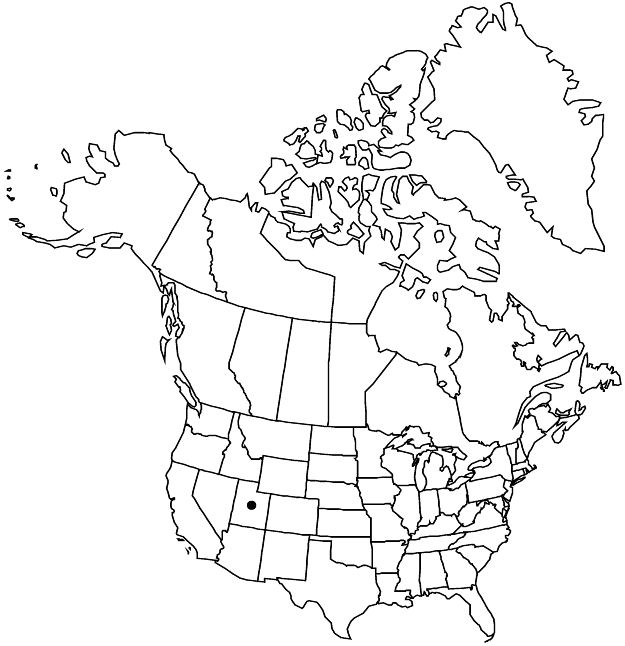Difference between revisions of "Sphaeralcea psoraloides"
Great Basin Naturalist 40: 36. 1980.
FNA>Volume Importer |
FNA>Volume Importer |
(No difference)
| |
Revision as of 20:16, 24 September 2019
Plants perennial. Stems erect, yellow-green, 1.4–2(–3) dm, stellate-canescent. Leaf blades yellow-green, triangular to deltate, usually 3-(or 5-)lobed, lobes unlobed or broadly oblanceolate, 1.3–3.5 cm, not rugose, base cuneate(-truncate), margins entire, surfaces sparsely stellate-canescent. Inflorescences racemose, open, flowers usually 1 per node, tip leafy; involucellar bractlets tan. Flowers: sepals 4.5–8 mm; petals red-orange, 10–17 mm; anthers yellow. Schizocarps flattened-hemispheric; mericarps 9–13, 2–2.5 × 2 mm, chartaceous, nonreticulate dehiscent part 10–15% of height, tip acute, indehiscent part wider than dehiscent part, sides reticulate. Seeds 1 per mericarp, dark brown to black, glabrous or pubescent.
Phenology: Flowering spring–summer.
Habitat: Clay or gravel soil
Elevation: 1200–1900 m
Discussion
Sphaeralcea psoraloides resembles S. coccinea but has markedly greenish, simply-lobed leaves; it occurs in Emery, Grand, and Wayne counties.
Of conservation concern.
Selected References
None.
